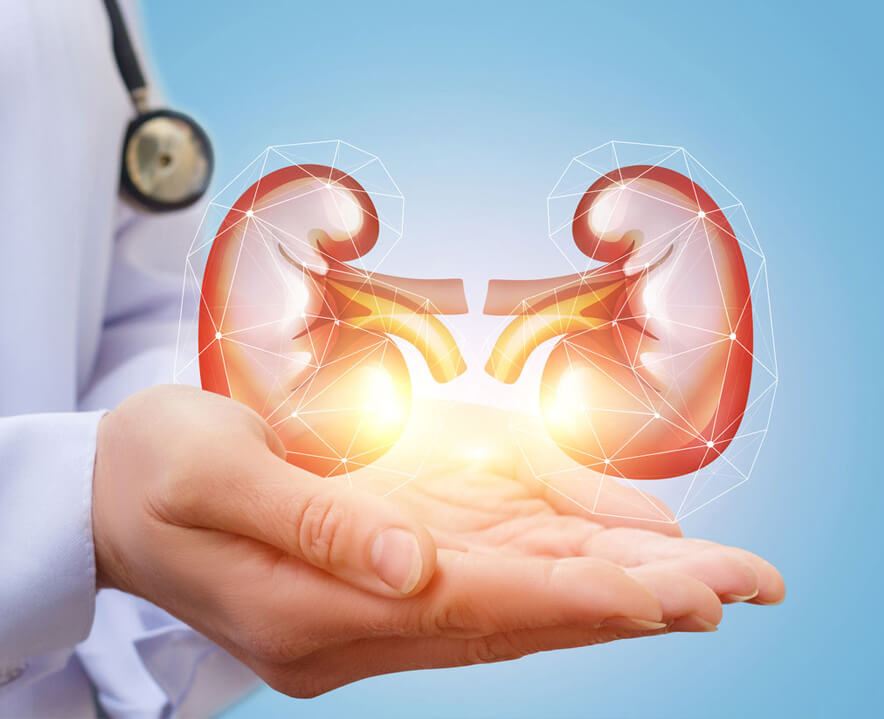Renal (Kidney) Biopsy
Kidney Biopsy or a Renal Biopsy is a procedure which is recommended by Nephrologists to diagnose
complicated Kidney problems. Depending upon the seriousness of the issue, a Kidney Biopsy
procedure is recommended, to monitor the situation and suggest necessary treatments.
Kidney Biopsy procedure involves the removal of small piece of kidney tissue that can be
evaluated under a microscope for signs of damage due to the disease. More widely known as
percutaneous renal biopsy, this procedure is performed by the doctors, by inserting a thin
needle. Before the actual process, your doctor will recommend certain blood or urine tests.
The following symptoms might
require a renal biopsy
- Blood in the Urine originating from the Kidney
- A medical condition termed as Proteinuria where there is excess of protein content in the
urine
- Problem with Kidney functioning
While all these conditions might not immediately call for renal biopsy, your doctor will decide
based on the seriousness of the condition and your overall health. This procedure is performed
under local anaesthesia for general patients but for children, it is performed under general
anaesthesia.
The renal biopsy procedure is generally a day long process. However the patient is advised a
day’s rest after the procedure. In general, the Kidney Biopsy procedure is safe. However, in
very few cases, there could be some complications like passing of blood in the urine, pain at
the biopsy site or high blood pressure.
Your nephrologist will counsel you well for the dos and don’ts of the procedure before you are
physically and mentally set to take up the test. If you are under long term medications for
other chronic ailments, it is a good idea to bring all the medications along and show them to
your nephrologist, during your discussions with him. Usually, a patient under long term
medication is advised to stop them, a week before the procedure and for a week after that.
After the process is completed, you might experience some pain due to the procedure performed
but these are taken care by medicines and restricted activity for some days. During the recovery
phase, if the patient experiences continued discomfort like a high fever, weakness or worsening
pain at the biopsy site, it will be good to see your nephrologist immediately.
The Renal Biopsy report takes about a week’s time to reach the doctor which will be discussed in
detail during the patient’s next follow up visit.
